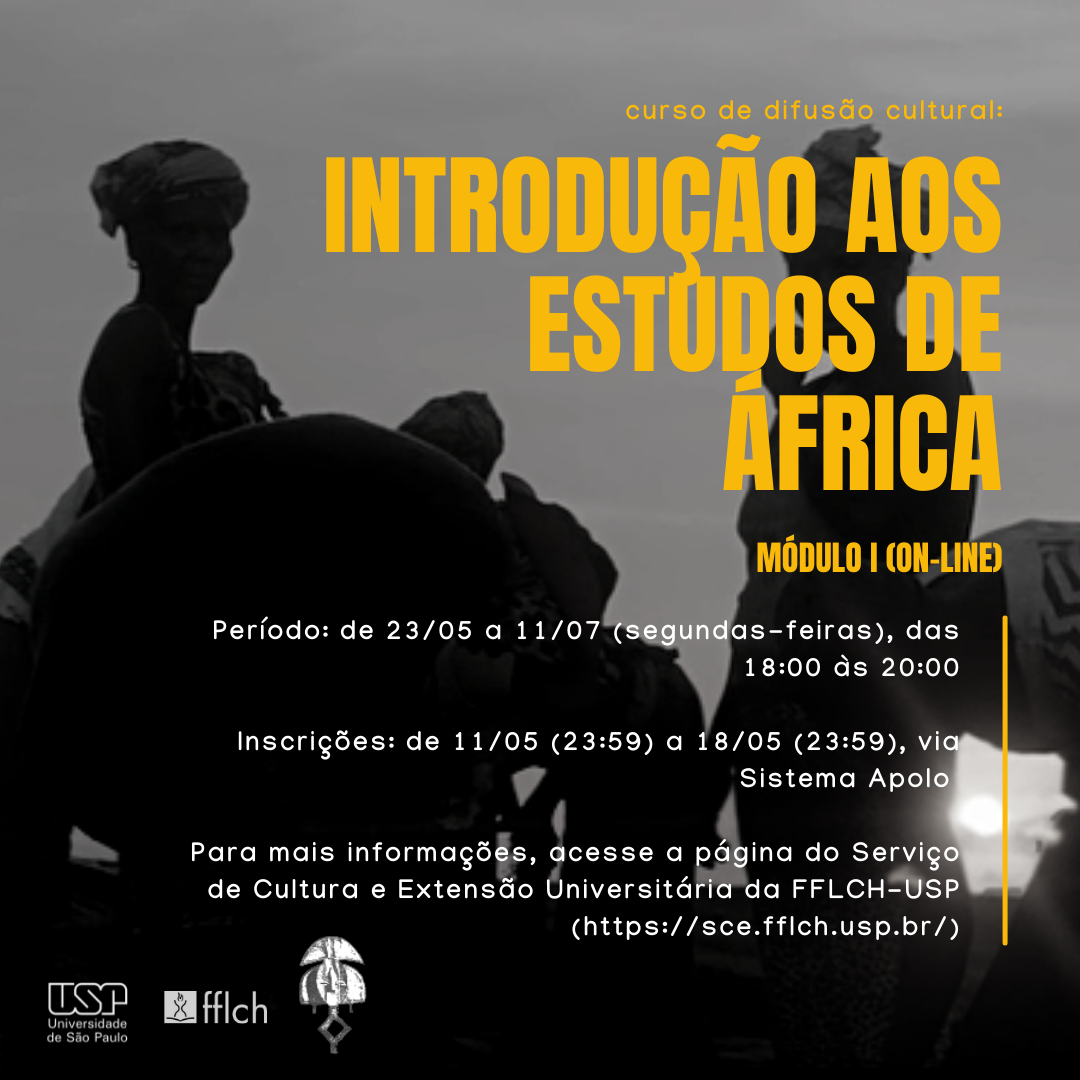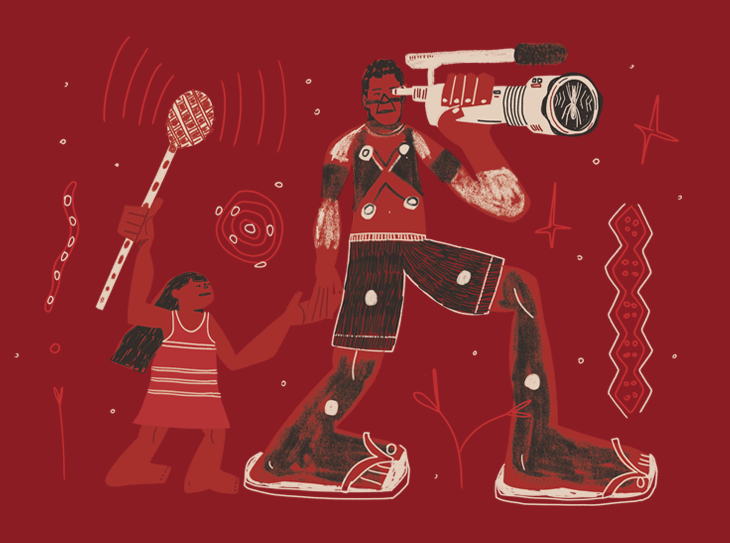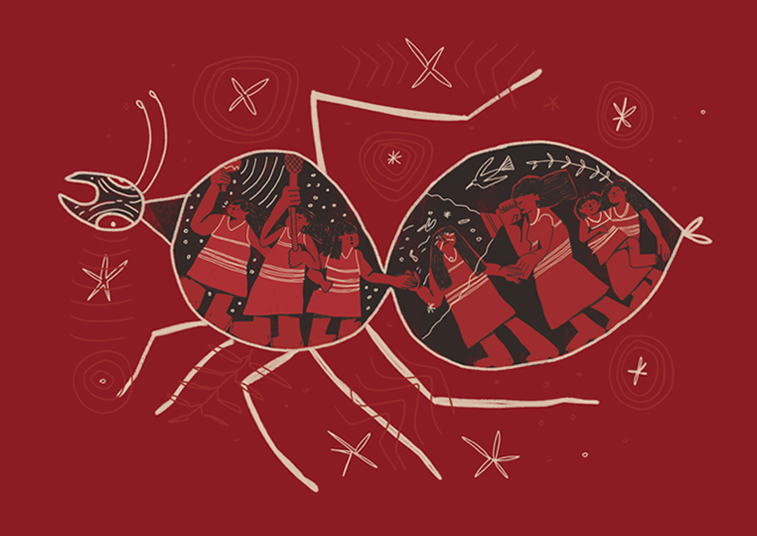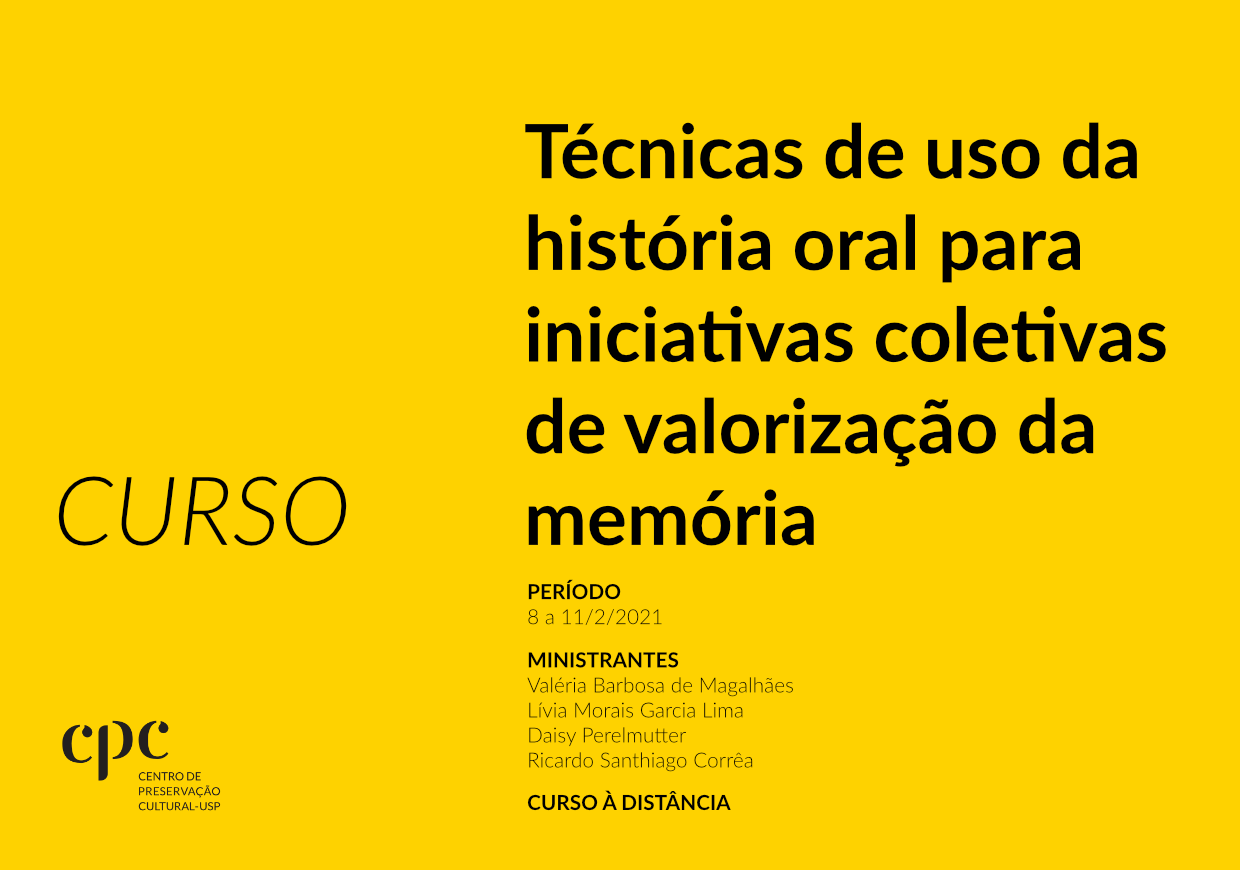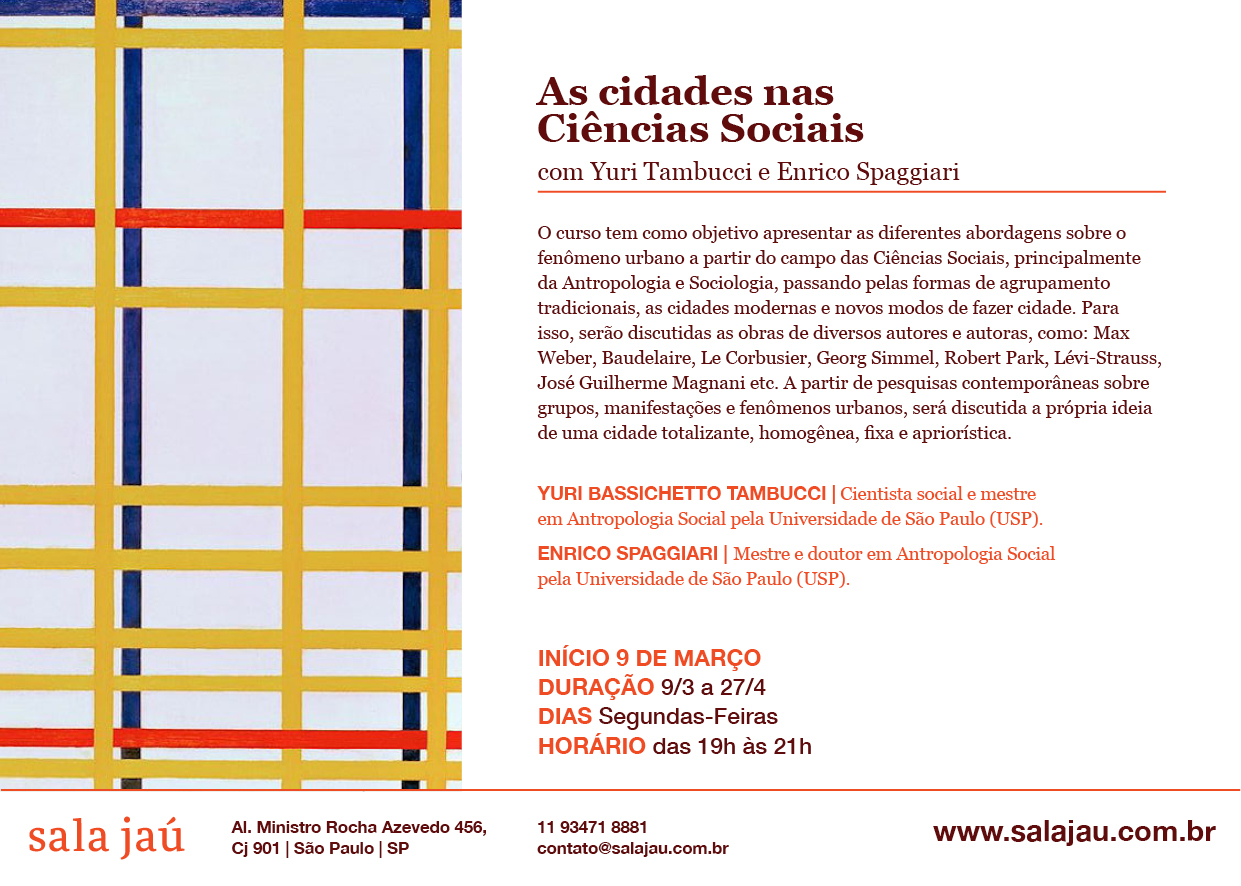History of Courses indicated by DA
Applications are open from 11/05 (23:59) to 18/05 (23:59) for the cultural diffusion course Introduction to African Studies (Module I), offered by the Center for African Studies at FFLCH - USP.
Period: from 23/05 to 11/07 (Mondays), from 18:00 to 20:00. The course will be online and free.
Entries must be made via the Apolo System, and the lottery for vacancies will be held on 05/19.
For more information about the course, access the FFLCH University Culture and Extension Service page: https://sce.fflch.usp.br
Free course, part of the programming of the Tikmư'ưn/Maxakali* Film Festival, taught by researcher and director Roney Freitas.
Inscriptions: https://bityli.com/Qj1Fi
The introduction to "Audiovisual Script - Creation processes (fiction and documentary)" aims to present and discuss, by concepts and exhibition of the creation process, the fundamental elements of the writing of a cinema script, such as character, scene, structure, expressive use of space and creation of script from myths. In addition to investigating diy methods, this course brings an introduction to the universe of writing for cinema, bringing important concepts in the act of thinking about audiovisual inspired from the experience of the films of the Cinema Show Tikmư'ưn Maxakali 2020.
Lesson 1 - Documentary Script Process - 06/04, from 7:00 pm to 9:00 pm
The process of developing documentary design and editing script.
Lesson 2 - Introduction to the Film Script - 08/04, from 19h to 21h
Aristotle's "Poetics" and its echoes: genres of writing.
Lesson 3 - Myth and script, creation processes - 13/04, from 19h to 21h
Discussion of the process of creating script from myths.
Free course, part of the programming of the Tikmư'ưn/Maxakali* Film Festival, taught by researchers Ana Estrela da Costa and Paula Berbert.
Inscriptions: https://bityli.com/K2hnC
If much of the so-called Western filmic experiences are concentrated in the act of capturing and recording images, on the audiovisual production of the filmmakers of the Tikmư'ưn/Maxakali people such experiences are as relational gestures, in marked continuity with the aesthetic regimes of look and listening conformed in shamanic practices carried out with the yãmưyxop, enchanted-singer sings, spirit-spirited peoples. As these experiences shared between filmmakers, "characters", shamans and yãmưyxop become cinematic products, other forms of relationship emerge beyond the villages, since such films constitute devices of encounter with other indigenous peoples and also with non-indigenous peoples. By expanding the cosmopolitical territories through which the Tikmư ́ưn/Maxakali circulate, as well as its agency possibilities, its cinema unveils itself as a powerful tool for translation between worlds.
The aim of this course is to reflect on the specificities of the tikmư ́ưn/maxakali mode of making cinema. For this, each session will highlight key elements that seem to give us a sense of whole to the intense audiovisual production of this people: the relations between cinema, ritual, body, territory and memory.
TARGET AUDIENCE: from 18 years. Maximum of 40 students.
Lesson 1 - Cine Maxakali: Cine-Caça-Ritual - 25/03, Thursday, 19h - 21h
Experiences of meetings between worlds. Cinema celebrates invisible presences, shares images between bodies that dance and listen to each other, look at each other, hide, seek, avoid each other, meet.
Lesson 2 - Making Territory - Memory. - 30/03, Tuesday, 19h - 21h
The beginnings and ends of the world are stories you don't forget. Memory is on earth and in the corners, and is shared with us through cinema
Lesson 3 - Making Body - Ưn Ka ́Ok - 01/04, Thursday, 19h - 21h
The rituals of initiation, growth and exchanges show the impossibility of fixed corporalities that experience a static reality. Cinema composes and gives to see bodies that are constantly produced through relational experiences with the yãmưyxop.
It is the feminine desire that motivates the arrival of the yãmưyxop to sing, dance and eat in the villages. The gaze and listening of women are the intense affections that keep alive and dynamic the alliances between worlds.
CPC-USP is offering a free course that will discuss the importance of oral sources in enhancing the memory of groups and present tools that can enable participants to implement history and memory projects and to build collections. It will be carried out in the distance mode, being necessary that the interested ones have access to the internet in speed and adequate conditions to the accompaniment of videos transmitted live. For more information access http://e.usp.br/gmk.
Realization: from 8 to 11 February 2021, from 9 am to 12 pm
Hours: 12 hours
25 places
Interested parties must complete the registration form from October 30 at: https://forms.gle/
We invite everyone to participate in the course, The Cities of Social Sciences, taught by Yuri Tambucci and Enrico Spaggiari with the participation of Prof. Dr. José Magnani.
The course aims to present the different approaches on the urban phenomenon from the field of Social Sciences, mainly from Anthropology and Sociology, passing through the traditional forms of grouping, modern cities and new ways of making the city. For this, the works of several authors and authors will be discussed, such as: Max Weber, Baudelaire, Le Corbusier, Georg Simmel, Robert Park, Lévi-Strauss, José Guilherme Magnani, etc. Based on contemporary research on groups, manifestations and urban phenomena, the very idea of a totalizing, homogeneous, fixed and a priori city will be discussed.
Yuri Bassichetto Tambucci | Social Scientist and Master in Social Anthropology from the University of São Paulo (USP)
Enrico Spaggiari| Master and PhD in Social Anthropology from the University of São Paulo (USP)
Enrollment runs until the day the course starts!
START: March 9, 2020
DURATION: 9/03 to 27/04
DAYS: Mondays
HOURS: from 19h to 21h
SALA JAÚ - (11)93471-8881 contato@salajau.com.br
www.salajau.com.br


